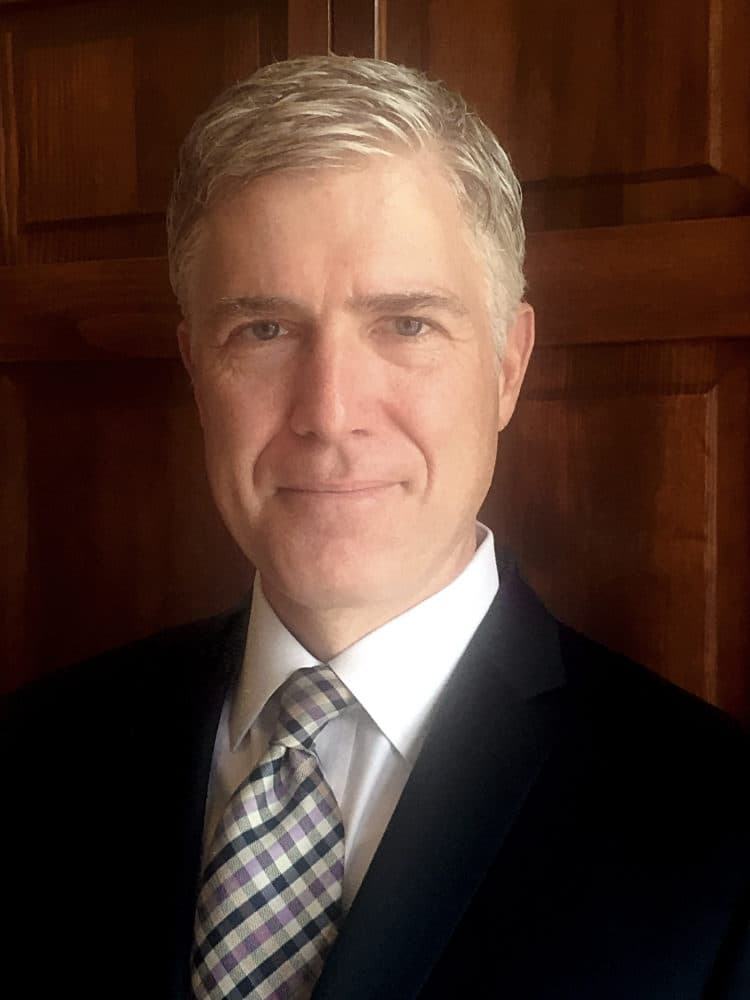By Mark Sherman and Erica Werner, Associated Press
WASHINGTON (AP) — Assured of support from majority Republicans, Supreme Court nominee Neil Gorsuch was wrapping up two days of Senate questioning Wednesday to glowing GOP reviews but complaints from frustrated Democrats that he concealed his views from the American public.
Gorsuch, a federal appeals court judge in Denver, refused repeated attempts to get him to talk about key legal and political issues of the day. But he did tell Sen. Dianne Feinstein, who worried that Gorsuch would vote to restrict abortion, that "no one is looking to return us to horse and buggy days."
The Supreme Court itself threw one surprise Gorsuch's way when it ruled unanimously Wednesday in a case involving learning-disabled students, overturning a standard for special education that Gorsuch had endorsed in an earlier case on the same topic.
The decision prompted sharp questioning from committee Democrats.
"Why in your early decision did you want to lower the bar so low?" Sen. Richard Durbin of Illinois asked.
Gorsuch said he was bound by an even earlier decision on the 10th U.S. Circuit Court of Appeals and said that any implication that he was against autistic children was "heartbreaking."
"I was wrong senator, I was wrong because I was bound by circuit court precedent," Gorsuch said. "And I'm sorry."
Aside from a few uncomfortable moments, Gorsuch generally maintained the mix of earnest talk about respect for prior court decisions, a pledge for absolute independence — "when you put on the robe, you open your mind" — and folksy humor that led to lighthearted exchanges with Republicans about his passion for fly fishing.
"What's the largest trout you ever caught?" Sen. Jeff Flake asked late in Tuesday's session. "Oh, now we're talking," Gorsuch shot back.
But every time Democrats tried to draw him out on a range of serious issues, including abortion and gay rights, Gorsuch answered in the same way: "I have declined to offer any promises, hints or previews of how I'd resolve any case." Gorsuch similarly wouldn't commit to a view on cameras in the Supreme Court, despite widespread support from senators on the Judiciary Committee.
Feinstein, the committee's senior Democrat, summed up her colleagues' frustration. "What worries me is you have been very much able to avoid any specificity like no one I have ever seen before," Feinstein told Gorsuch. "And maybe that's a virtue, I don't know. But for us on this side, knowing where you stand on major questions of the day is really important to a vote 'aye,' and so that's why we pressed and pressed."
Republicans, on the other hand, couldn't get enough of the Colorado native. Sen. Orrin Hatch said he hadn't seen a better nominee in 40 years in the Senate.
Lindsey Graham of South Carolina lamented what he called the deterioration of the Senate confirmation process since Antonin Scalia, whose seat Gorsuch would fill, and Ruth Bader Ginsburg were confirmed with more than 90 votes each.
"What's happened? Did the Constitution change? I don't think so, I think politics has changed. I think it's changed in a fashion that we should all be ashamed of as senators, and I think we're doing great damage to the judiciary by politicizing every judicial nomination," Graham said.
His statement about the process left out Judge Merrick Garland, President Barack Obama's nominee for the seat that opened up when Scalia died more than 13 months ago. Senate Republicans blocked any action on Garland's nomination all year, and the episode has left Democrats enraged.
Following Graham, Democratic Sen. Patrick Leahy of Vermont said the treatment of Garland was unprecedented. "For the first time in the history of the United States, the Senate refused to hold a hearing, refused to have a vote," he said.
The hearing is taking place against the backdrop of turmoil in Trump's young presidency. Democrats including Senate Minority Leader Chuck Schumer are demanding a pause in Gorsuch's confirmation process pending the FBI investigation of alleged ties between Trump's presidential campaign and Russia. Republicans have dismissed those demands.
"I think President Trump, with all of his problems and all of his mistakes, chose wisely when it came to this man," Graham said.
Under questioning from Graham, Gorsuch repeated statements he'd made publicly for the first time Tuesday, that he was "disheartened" and "demoralized" by Trump's attacks on the judiciary, including federal judges who blocked the president's refugee travel ban.
When Leahy pressed him on whether the president could ignore a court order, Gorsuch replied: "You better believe I expect judicial decrees to be obeyed."
The confirmation hearing will wrap up with a panel of outside witnesses talking about Gorsuch, before a committee vote expected April 3 and a Senate floor vote later that same week. Republicans control the Senate 52-48, so it would require eight Democrats to move Gorsuch past procedural hurdles that require 60 votes.
No Democrat has yet pledged to support the judge, but Sen. Joe Manchin of West Virginia said Wednesday he is open to voting for him. McConnell could also change Senate rules to confirm Gorsuch with a simple majority, and appears prepared to take that step.
___
Associated Press writer Mary Clare Jalonick contributed to this report.












